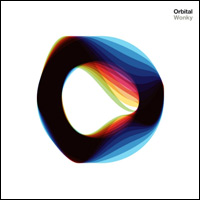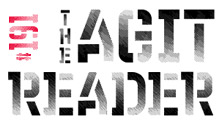
Sonik Kicks
Yep Roc
It’s been nearly 30 years since The Jam called it a day, and it’s precisely that long that fans of Paul Weller have been waiting for an album that lives up to the man’s work as singer and guitarist for that seminal band. Sure, there’s been a few decent records in his solo output, but even 2010’s Mercury Prize–winning Wake Up the Nation seemed like perhaps just the peak of a mid-life recrudescence that nevertheless ultimately doesn’t measure up to his work as an angry young man. (And did anyone really like The Style Council?)
But with Sonik Kicks, Weller’s 11th solo record, the Modfather has made an album that not only lives up to its title, but which is without a doubt his finest moment since The Gift. Collaborating again with co-producer Simon Dine, who worked on Nation and its predecessor, 2008’s 22 Dreams, Weller has injected the album with enough ingenuity to ensure it doesn’t sound stale while also retaining enough of his hallmarks to give it appeal.
The album rushes out of the gates with “Green,” a mix of big riffs and oscillating synths, but it is the subsequent “The Attic” that is its finest moment. Here, Weller is instantly recognizable, his amber croon traipsing over buoyant, soul-flecked pop. Elsewhere, Weller diversifies into varying mixes of rambunctious rock, reggae and dub, R&B, and modern inflections, and on cuts like “When Your Garden’s Overgrown” and “Around the Lake,” he sounds particularly enlivened, hitting his stride so to speak. He’s helped out by Noel Gallagher and Graham Coxon on a few tracks, but it’s abundantly clear that Weller needed little assistance in making one of the finest albums of his long career.
Stephen Slaybaugh

I Love You, It’s Cool
Dead Oceans/Hometapes
Bear in Heaven conjures in my head an incredibly specific cultural moment. On the their last record and this new one, they come across as the logical end of the music Queen made for Flash Gordon in 1981. Which is not to say the record sounds dated, but Bear in Heaven’s music is pretty grandiose for a bunch of pop songs, and it’s downright heroic at times. Flash Gordon was pretty poppy for a film soundtrack, and Queen was determined to capture Flash’s heroic quality. The result was a cinematic pop album, full of squealing synths and huge drum flourishes, heavily layered with emotions that reach for the heavens and attempt to move the earth. That’s pretty much what I Love You, It’s Cool is.
“Kiss Me Crazy” decries “we could make a miracle,” and the dramatic range of the song—from the slow build at the beginning to the drums of doom near the end—is a great example of how the band can make feature film–worthy drama out of a romantic moment. Tracks like “Sinful Nature” and “World of Freakout” are almost post-apocalyptic in the conviction of their huge bass notes and churning synth chords. On “Cool Light,” the big gestures mostly disappear, but the song is still shot through with a noirish paranoia that’s bound to inspire movies in your head.
The album culminates in the Velvet-y, six-minute “Sweetness and Sickness,” a droning step back from the urgency of the preceding nine tracks. It’s one of the more promising songs on the album in that it shows an alternate road for the band. It’s full of the sounds of which they’re clearly so fond, but shows BIH’s ability to completely transform the tone of their work. Reaching the end of the album, you really feel like you’ve been through some shit—highs and lows, pleasure and pain—a pretty wide gamut for a bunch of pop songs.
Matt Slaybaugh
MP3: “The Reflection of You”

Wonky
ACP
Because pop culture has the memory of a goldfish, people forget that long before Skrillex decided to rock the Cyndi Lauper “Time After Time” sidecut, electronic music was a force. And while it took a while to gain a foothold in the American mainstream (only to slip away again), in England electronic acts not only hit the pop charts, they became stadium and festival headliners. One of the first to make it that big was the brothers Phil and Paul Hartnoll, better known as Orbital. After forming in 1989, they hit quickly with their first single “Chime,” which became an anthem for the emerging rave culture. After that it was a constant climb to their star-making turn headlining the Glastonbury Festival in 1994. They continued to maintain a healthy career, with eight albums and numerous mixes and live performances, until the brothers put the brakes on Orbital in 2004. But as everyone knows, no break-up in music is permanent these days, and after reuniting for a successful series of shows in ’09, the Hartnolls headed back into the studio to record their comeback, Wonky.
Reunion records are always a dicey prospect, but in electronic music there’s a whole new wrinkle. Because technology and styles evolve at such a rapid rate, what sounded like the future then may seem as quaint as an episode of Space: 1999 now. But to Orbital’s advantage, they were always slightly out-of-step with the times. While they certainly absorbed what was going on, there were never any overt attempts to chase the music of the moment. Wonky continues in that tradition. Not quite techno, not really a rave revival, the album instead puts everything under one umbrella. Now this isn’t to say that Wonky is the sound of Orbital treading water for some reunion cash. On the contrary, it’s the sound of a band that not only revived their classic sound, but is also trying to bring the ruckus to the new school. But instead of having a chip on their shoulder, they do so with a sly sense of humor. So their live favorite “Satan” is recast as the dubstep tinged “Beelzedub,” and their tribute to Detroit is called “Stringy Acid.” Wonky is the best of both worlds: something for longtime fans and newcomers, without condescending to anyone.
Dorian S. Ham
MP3: “Never”

Transverse
Mute
Like anything Chris Carter and Cosey Fanni Tutti have done—be it in Throbbing Gristle or as Chris & Cosey or Carter Tutti—their new collaboration with Factory Floor’s Nik Void is utterly unique. After rehearsing in the studio, the trio performed the four pieces (pragmatically titled “V1,” “V2,” “V3” and “V4”) contained on Transverse at the Short Circuit Presents Mute Festival in London in 2011, with the results preserved on tape.
Given the members avant garde leanings and penchant for noisy, industrialized electronics, the record’s cohesiveness is as jarring as any of the sounds therein. Indeed, each of the 10-minute cuts quickly finds a narrative thread and sticks to it. “V1” is built atop a rhythmic pulse, with Void and Tutti using their six-strings to set off detonations of sonic ripples. It’s the perfect opening, as it puts the listener’s head in the right space. While the remaining pieces also have a rhythmic base, it is the sounds that cut across that foundation that distinguish “V2” and “V3.” Tutti’s vocals are little more than hiccuped asides, but they pulsate through the song’s surface. Similarly, each guitar’s output sounds more like a call from the wild than anything manmade, unidentifiable though it may be. Part of the album’s appeal is that however alien it seems, there is something eerily familiar at work. Transverse may not be easy listening—not by a long stretch—but there is nothing difficult about liking it.
Stephen Slaybaugh

Relapse
13th Planet
For a considerable portion of Ministry’s three-decade existence, George Bush Sr. and George W. Bush served as inspiration for frontman Al Jourgensen’s venom-filled lyrics. The latter inspired some of Ministry’s angriest and most powerful works, including Houses of the Molé (2004), the first of the “Bush trilogy” that continued with Rio Grande Blood (2006) and The Last Sucker (2007), while the former, in a chilling case of foreshadowing, was sampled in “N.W.O.” on 1992’s Psalm 69. Before the release of what was supposed to be the final Ministry record, The Last Sucker, Jourgensen even joked about riding off into the sunset with George W.
Ministry has always been one of the only bands with a sound big enough to take on cases of corruption and injustice, and powerful enough to at least fuel some hope—or inspire constructive/destructive action in its listeners. Returning with Relapse, Ministry proves there’s still plenty of greed and inequality to fuel another album’s worth of songs. However, Jourgensen and company head in a slightly new direction with Relapse, with a more guitar-heavy sound that trades darkness for speed. Gone are the heavy tapestries of sheer industrial noise and in its place are machine-gun-like drums and speed metal guitar riffs that have only been hinted at on other records.
Despite its call to Occupy Wall Street, “99 Percenters” has a kind of an Andrew WK party vibe. “Get Up Get Out n’ Vote” is Jourgensen railing, accompanied by loud guitars and samples, but instead of cohesive, these elements seem disparate. For the most part, the tracks on Relapse don’t seem as much in keeping with Ministry as Jourgensen side projects like Revolting Cocks and Buck Satan and the 666 Shooters. But Jourgensen has always marched to the beat of his own drum—it’s just always been louder than most, and this time, it’s faster too.
Josie Rubio
ALBUM REVIEWS
Gift of Gab, The Next Logical Progression
Lee Ranaldo, Between the Times and the Tides
The Ting Tings, Sounds from Nowheresville
Mark Stewart, The Politics of Envy
Tanlines, Mixed Emotions
The Wedding Present, Valentina
The Golden Boys, Dirty Fingernails
Xiu Xiu, Always
Herzog, Cartoon Violence
Mrs. Magician, Strange Heaven
White Rabbits, Milk Famous
Mux Mool, Planet High School
VCMG, Ssss
Bowerbirds, The Clearing
